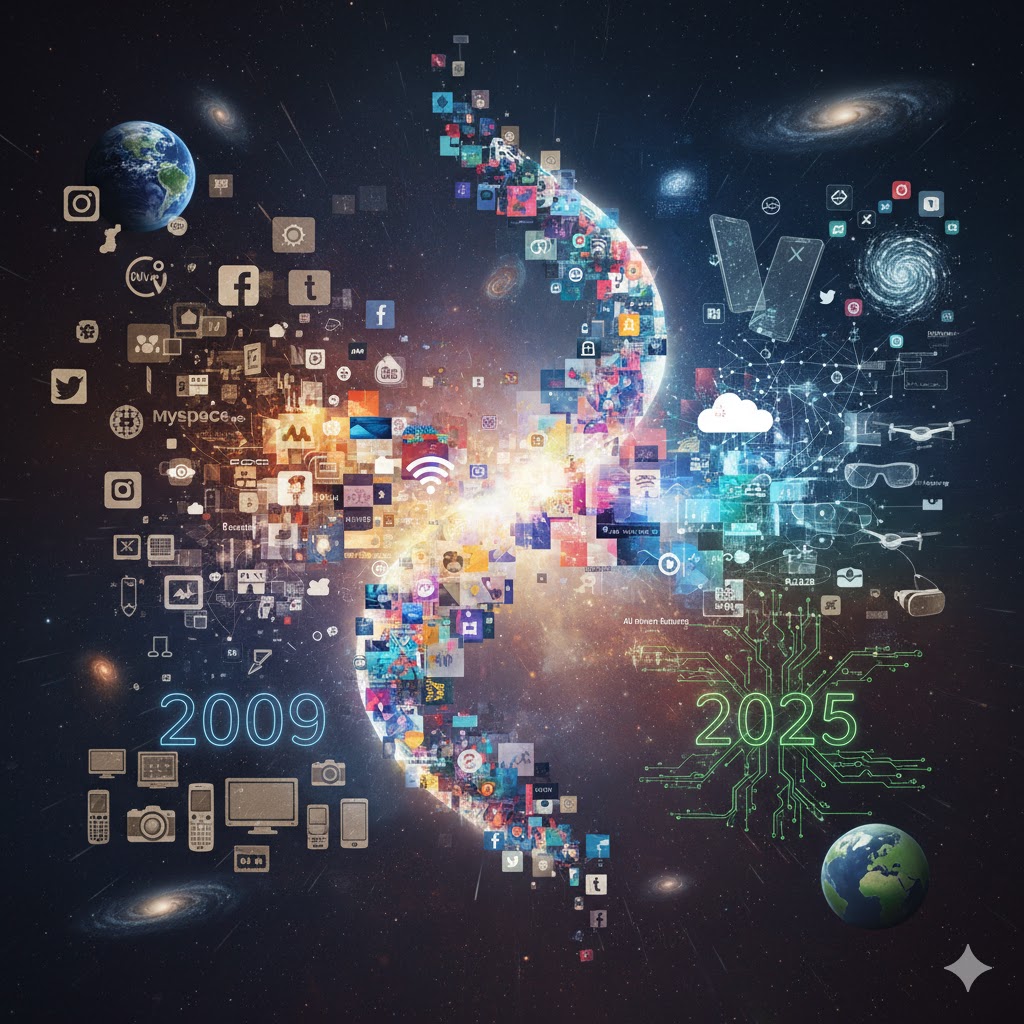Life is absolutely amazing. And time passes quickly. I can’t believe that it has been 16 years since I have posted to this blog. So much has gone on, and we are now definitely living in the future. Many of the occurrences I expected have occurred … and more … and it is a surreal experience living in this future.
As much as I had learned from great minds to expect the unexpected, and that progress is on a logarithmic rather than linear scale, the future seemed so distant in 2009. And now we are fully immersed in the future that people like Ray Kurzweil predicted.
I have kept busy as usual, exploring all aspects of science and technology. When I stopped blogging, I continued to research and work in numerous areas of technology and numerous positions in the industry. I was married, had a son, and divorced … and he is now 23 years old. When I stopped blogging I was working as a CTO and part-time CTO for a number of start-up companies. I had a team of offshore developers, and then started doing R&D in the M2M/IoT market.
What intrigued me about IoT was two key dimensions and the tidal wave I saw coming. Long before 2009 I had been working at Novell and realized that “The Internet is the developing nervous system of the human organism on earth.” I am a strong proponent of biomimicry and believe the same evo-devo forces are still molding our future through new substrates. With IoT I realized that “The Internet of Things is providing the Internet with the ability to feel and interact with the physical world.” This became an area of fascination for me. The Internet was developing a sensory system – primarily mediated by humans – but moving towards direct interaction. And back in the 2009 time frame when I saw my first Ethernet-attached embedded system that had an embedded web server and that could generate webhooks I realized the future was coming fast. At the same time, the various developer ecosystems were emerging, hardware costs were falling, and new components were arriving every day. This is when I started my company Wovyn, to explore was is possible.
With Wovyn I began to design and develop an abstracted fabric of sensors, gateways, and protocols to support wired and wireless sensor infrastructure. Collaborating with my customers we created a wide range of deployments, and learned all of the properties that needed to be considered, and also the limitations of the technologies. It was an incredibly fun journey! And over that next 15 years the IoT market has developed and matured far more than I imagined. This is an area that I am still experimenting. I’ll continue to write about that.
My goal in returning to this blog is to once-again share my thoughts and projects, research and news, and to hopefully inspire others to explore the possibilities of the world and dream about the future that we are living into!
Scott C. Lemon
October 11, 2025

